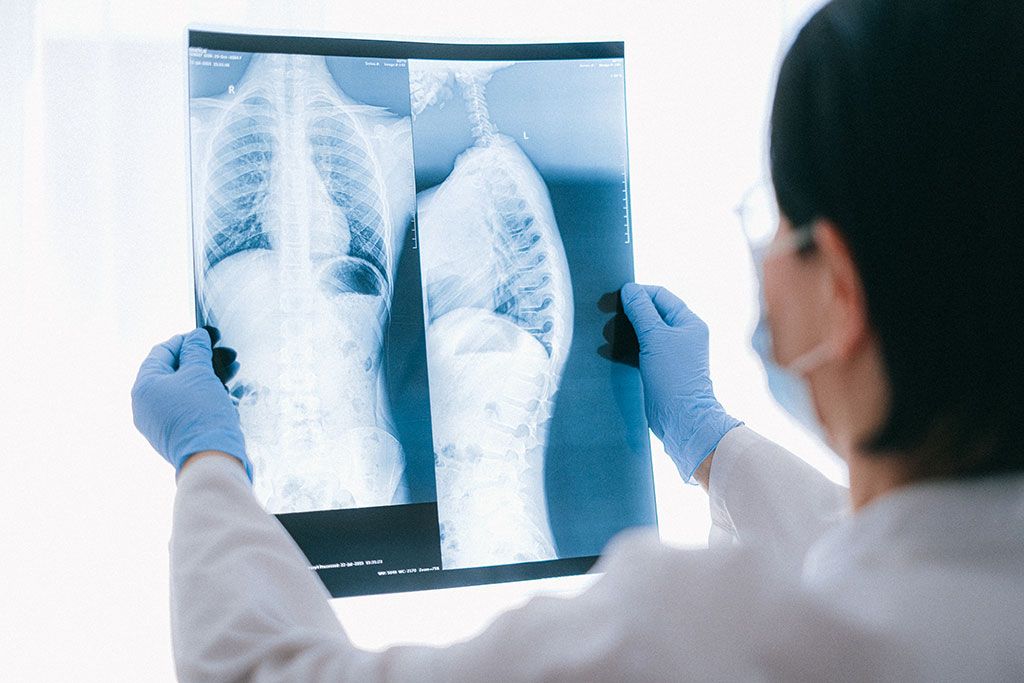Existing Chest CT Scans Can Predict Risk of Heart Attack or Death during Major Surgeries
Posted on 06 Mar 2023
Major surgeries, which generally involve vital organs, increase the risk for heart attack, stroke, and death in patients. Physicians generally determine the risk of such events by conducting additional cardiac tests, although these can delay surgery and raise healthcare costs. Now, a new study has found that rather than using special heart scans, physicians can utilize images of the chest captured months earlier, and for other reasons, to measure a patient’s risk of heart attack or death during major surgeries.
Researchers at NYU Grossman School of Medicine (New York City, NY, USA) analyzed existing computed tomography (CT) scans to estimate levels of hardened (calcified) fatty plaque deposits in the heart's three largest blood vessels. It was found that patients with higher buildup of this plaque had greater chances of developing serious health issues post surgery. It is common for most patients to already have chest images from prior screenings for lung conditions such as pneumonia and lung cancer. So, the research team decided to explore whether physicians without any formal training in imaging were capable of identifying coronary calcium on these preexisting tests in order to arrive at accurate predictions and do away with additional CT scans.

For the study, the researchers examined the electronic health record of 2,650 men and women age 45 and older who had undergone surgery unrelated to the heart between January 2016 and September 2020 at NYU Langone hospitals. This information included the type of procedure and instances of death and heart attack, among other details. All these patients had also undergone a general CT scan of their chests less than a year before their surgery. Those patients with death or heart attack during the hospitalization for surgery were then identified.
Next, four team members without any formal training in CT interpretation were given a 90-minute training session in which they were taught to estimate coronary calcium severity from the imaging. The scoring system used in the study rated the plaque buildup in each of the heart's three major coronary arteries on a three-point scale ranging from "absent" to "severe." The scores were then combined to a final grade ranging from 0 to 9. The results showed that patients having scores from 0 to 2 had a 4% or lower risk of major adverse cardiac events (MACE); patients with scores from 3 to 5 had an 8% risk; and patients having scores from 6 to 9 faced a 13% risk. Additionally, the researchers found the calcium estimates to be consistent among the physicians, indicating that the rating system was reliable.
"Our findings show that imaging already on hand can help physicians make practical decisions about surgical risks, even though such tests may not be as precise as those designed for this purpose," said lead author Daniel Choi, MD, a cardiology fellow at NYU Langone Health.
"Our coronary calcium assessment is easy to use and requires minimal training, and so offers a cost-effective tool that can be implemented in any medical practice," said study co-senior author and cardiologist Robert Donnino, MD.
"While evaluating cardiac risks before surgery is helpful, it will be important to find new strategies to prevent adverse events after the procedure and improve survival," added study co-senior author and cardiologist Nathaniel Smilowitz, MD. "Future studies might explore ways to reduce heart attacks without causing additional bleeding at the surgical site, perhaps by studying therapies that reduce inflammation during surgery."
Related Links:
NYU Grossman School of Medicine




 Guided Devices.jpg)









